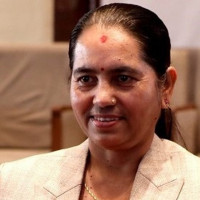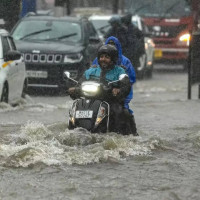- Wednesday, 20 August 2025
KMC's Anti-smoking Move
In a welcome move, the Kathmandu Metropolitan City (KMC) has imposed a ban on smoking in public places effective from August 17. The much-sought-after restriction is expected to reduce the health risks of people in the capital city, which has frequently earned the notoriety of being the most polluted place in the world. Under the new provision, anyone has to pay an on-the-spot fine of Rs. 500 for violating the ban. A strict restriction on smoking is necessary for the protection of public health as smoking increases the risk of multiple diseases, such as lung cancer, respiratory ailments, heart disease, and stroke, among others. The passive smokers also have to suffer without their fault. Various studies have shown that millions of passive smokers die of respiratory diseases in the world. Mostly, children, women, and elderly people risk catching lung cancer, heart disease, and respiratory problems from being involuntarily exposed to smoking by others. The ban on smoking in public places has now ensured the right of people to breathe in clean air.
This is not the first time a ban has been imposed on smoking in the open in KMC. Based on previous experiences, there is widespread non-compliance with smoke-free public places laws. Deploying security officials to discourage smoking in public places is less likely to be effective until KMC creates more designated spaces for smoking in an endeavour to respect personal freedom, not to promote smoking, but to manage it responsibly. The metropolis should focus on an awareness-generating campaign for target groups, especially college goers. It should also formulate laws to restrict the sale of cigarettes and tobacco products to young school and college students, as the ban on smoking alone will not act as a deterrent to the injurious habit of people.
We have seen school students and college students smoking in open spaces, and authorities have turned a deaf ear to this. The KMC should bring forward some rules so that selling cigarettes to young students could be controlled to a certain extent. Likewise, when the cigarette butts and packets thrown everywhere in public places are an eyesore in the valley, the ban, if enforced honestly, could also contribute to giving a good look to the city roads. According to the World Health Organisation, tobacco kills 27,000 people every year in Nepal. Its use is a major risk factor for non-communicable diseases, including cancers, cardiovascular disease, lung disease, and diabetes.
The KMC has suspended the emission testing of vehicles since January indefinitely. And now it has introduced an anti-smoking law. However, for citizens grappling with the issue of severe air pollution, these moves alone are not enough to remain healthy. They are facing a more serious problem of air pollution, for which they want the metropolis to take immediate action. In April, the air pollution notched 348 AQI. Once the pollution rises above 301AQI, it is considered extremely unhealthy. Along with the ban on smoking, measures should also be taken to test the emissions of vehicles responsible for polluting the city. Nonetheless, the common people and experts have seen the KMC's step to ban smoking in public spaces in a positive light. The KMC requires deploying adequate human resources to effectively enforce the ban. The commendable action will significantly contribute to improving life expectancy and fostering a healthier, happier, and more civilised society.
















